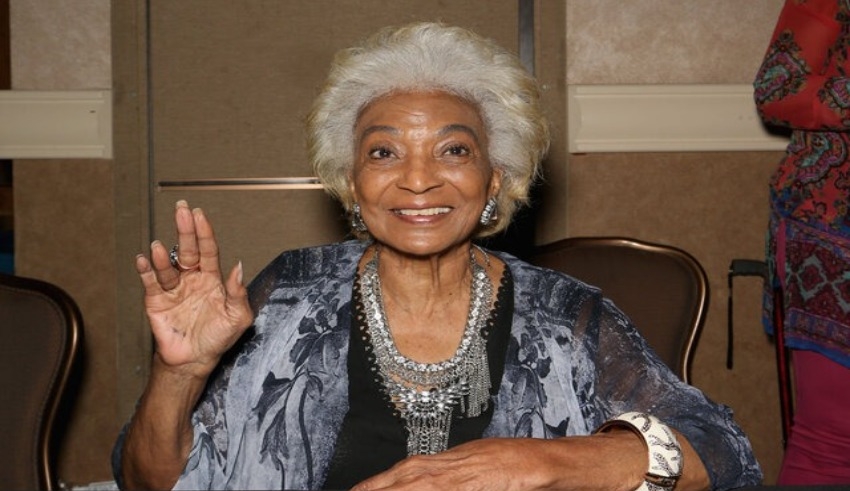
The late actress Nichelle Nichols, who is best remembered for her role as Lieutenant Uhura on the 1960s television series “Star Trek,” will be the next cast member of the show to be memorialized by having some of her earthly remains launched into space as part of a memorial ceremony.
As one of the first Black women to portray an empowered character on network television, Nichols is credited with helping to shatter racial stereotypes and redefining Hollywood roles for Black actors during the height of the U.S. Civil Rights movement. Nichols passed away on July 30 at the age of 89.
Now, her name has been added to the passenger manifest of a real-life rocket ship that is scheduled to carry a collection of vials containing cremated ashes and DNA samples from dozens of deceased space enthusiasts on a final and eternal voyage around the sun, according to the organizers of the tribute. Her ashes will be carried aboard the rocketship in the same manner as the other ashes and samples.
The launch will not occur until a date that has not yet been determined.
James Doohan, who played the show’s chief engineer Scotty, as well as Gene Roddenberry, who was responsible for creating “Star Trek,” are among the other “Star Trek” cast members and executives whose remains have been blasted into space.
Related Posts
In addition, the ashes of Majel Barrett-Roddenberry, who played the role of nurse Christine Chapel on the series, and Douglas Trumbull, a renowned visual effects artist in the field of science fiction whose work appeared in movies such as “2001: A Space Odyssey” and “Star Trek: The Motion Picture,” will be present at the launch.
Celestis Inc., based in Texas, is the company that is responsible for organizing the launch. The company has carved out a special place for itself in the expanding commercial space sector by offering a measure of cosmic immortality to customers who can afford a dramatic send-off. The company contracts with private rocket ventures to carry out the launch.
The costs associated with using Celestis’ service, along with any other relevant financial information, have not been made publically available.
The forthcoming commemorative flight will be on a Vulcan Centaur rocket, which is still in the process of being developed by the joint venture United Launch Alliance, which is composed of Boeing and Lockheed Martin (ULA).
According to Charles Chafer, co-founder and chief executive officer of Celestis, the plans call for the more than 200 capsules carrying human remains and DNA to be placed inside the upper rocket stage that will fly on into deep space, beyond the gravitational pull of the Earth and moon, and eventually enter a perpetual solar orbit. Celestis is calling this endeavor its “Enterprise Flight.”
According to Kyle Johnson, Nichols’s son, who spoke to Reuters, the plaque is “a lovely memorial for her, an enduring one.”
Nichols was hired by NASA in the 1970s to assist in the recruitment of more underrepresented groups and women for the space agency. She was instrumental in the recruitment of pioneering individuals such as Sally Ride, the first woman to represent the United States in space, Mae Jemison, the first African American woman to represent the United States in space, and Charlie Bolden, the first African American to lead NASA.


























